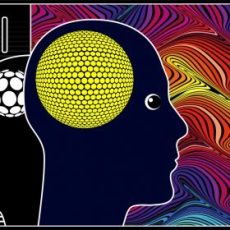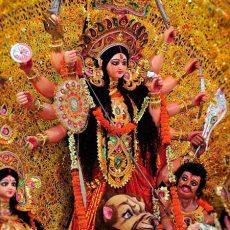On his visit to USA, The Indian Prime Minister Mr Narendra Modi became emotional while answering a question at Facebook town hall. The question was pertaining to hardships his mother faced while raising him. He said in an emotional but proud voice that his mother Heeraben Modi raised him and his siblings as a single parent after his father’s early demise.
“When we were small, to sustain us she cleaned dishes, filled water, did laborious work at the neighbouring houses. You can imagine the hardships a mother went through in order to raise her kids,” PM Modi spoke haltingly as he tried to control his tears, amidst a hushed silence at the event.
One does not expect the Prime Minister of a country to become so emotional talking about his personal life at a public platform in a foreign country. Why? Because we think that Prime Ministers cannot behave as we ordinary human beings do. This assumption is total nonsense. They are as human as we are! Even the enlightened masters, who transcend the worldly relationships and attachments, have been known to become emotional. It is perfectly OK to be emotional–it is healthy.
Osho mentions a beautiful Zen story in ‘Dhammapada: The Way of the Buddha’. The story goes like this: Basho’s master died — Basho is a Buddha, a Buddha who writes poetry, a Buddha who paints beautiful pictures, a very aesthetic Buddha. His master died, thousands of people gathered. His master was very famous; more famous because of Basho, because Basho was a famous poet and painter and he was Basho’s master. Thousands of people gathered and they were very surprised when they saw Basho crying, big tears rolling down his cheeks. Happyho also provide best tarot reading services in Noida and Delhi NCR India area.
A few close disciples of his master came to Basho and said, “It does not look right. Thousands of people are coming and they are getting confused. They don’t think a Buddha should cry and weep. You are the man who has been saying to them again and again: There is no death and the innermost core lives forever. Then why are you weeping? Your master is not dead, he has only moved from the small body to the universal body of God. So why are you weeping?”
Basho wiped his tears and he said, “Listen! This is nobody’s business. I live according to my inner feelings, I cannot pretend. When my innermost core has disappeared into the universal I don’t care whether people think it right or not. If they don’t think that I am enlightened it’s okay, but I cannot pretend. I cannot do something which is not really there. And yes, I have said that the soul is immortal and my master has not died, he has disappeared into the universal. That’s why I am crying, not crying that he is dead but crying that now I will never be able to see his form. Now he has become formless — and his body was beautiful. I will never be able to look again into those deep eyes, I will never be able to hold his hand and touch his feet. I have lost his form — I am crying for his body, for his form; I am not crying for the formless soul. And I am not concerned whether people consider me enlightened or unenlightened, that is their business. Who cares?”
There is a beautiful book by Osho, Emotional Wellness, and in one of the chapters, the enlightened master explains:
“Emotions cannot be permanent. That’s why they are called “emotions”– the word comes from ‘motion’, ‘movement’. They move; hence, they are ’emotions.’ From one to another you continually change. This moment you are sad, that moment you are happy; this moment you are angry, that moment you are compassionate. This moment you are loving, another moment full of hatred; the morning was beautiful, the evening is ugly. And this goes on. This cannot be your nature, because behind all these changes something is needed like a thread that holds all of them together. Just as in a garland you see flowers, you don’t see the thread, but the thread is what is holding all the flowers, in the same way these emotions are all flowers. Sometimes anger flowers, sometimes happiness, sometimes pain sometimes anguish. But these are all flowers, and your whole life is the garland. There must be a thread; otherwise you would have fallen apart long ago. You continue as an entity – so what is the thread, the polestar? What is permanent in you?”
It is the witnessing consciousness.




